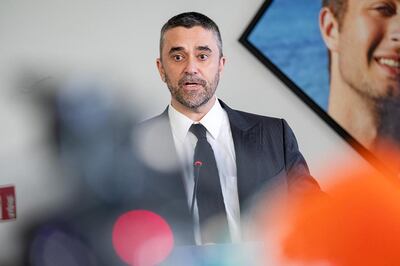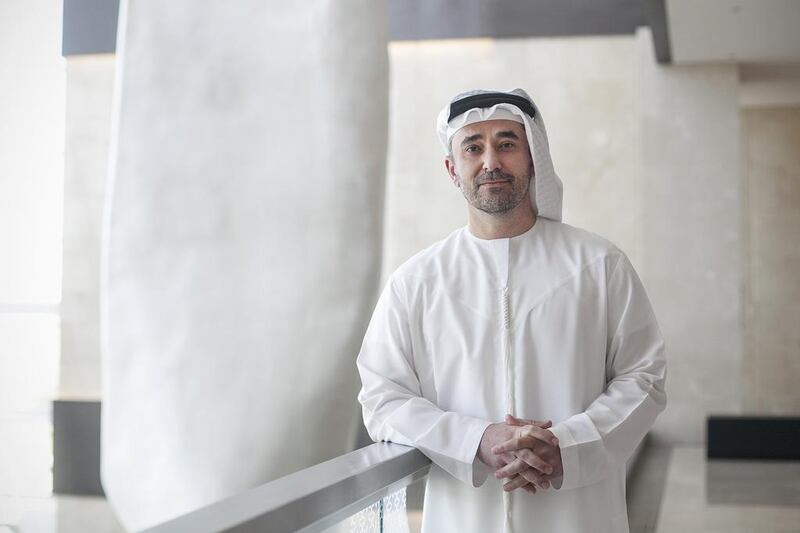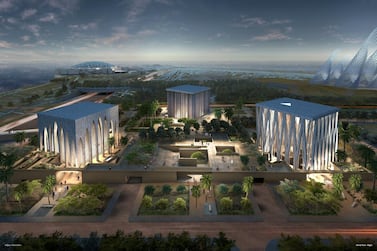Large parts of the Middle East have become “playgrounds for local thugs and war economies”, where innocent communities are “torn up and terrorised”, a UAE assistant minister said.
“The collapse of nation states into arenas for civil war and ethnic cleansing” has created a breeding ground of intolerance and extremism, Omar Ghobash, the UAE’s Assistant Minister for Culture and Public Diplomacy, told a major international conference on interfaith dialogue.
“This national and societal collapse has been accompanied by the rise of extremist groups of inexplicable ferocity and evil such as Al Qaeda and ISIS, and all of their offshoots,” the minister told the European Parliament-sponsored conference in Belgium.
Mr Ghobash spoke of his concern for the growing population of young Arabs in the region and the challenges they face with education and employment.
“What were once clear traditional modes of describing the world and our place in it have been swept aside by the ability of the young to follow every strand of interest they have," he said.
Mr Ghobash said that at the same time, “large parts of the Arab world have become the playgrounds for local thugs and war economies, as well as the arena for global powers to assert their interests".
“Communities and societies of the innocent are being torn up and terrorised – terrorised by the reality of violence as well as the uncertainty the future holds for them,” he said.
Mr Ghobash’s father Saif, the UAE's first foreign minister, was killed in a terrorist attack at Abu Dhabi International Airport in 1977.
“If we allow intolerance to thrive in our societies, it will not be long before that intolerance devours us all,” Mr Ghobash said.
He was keynote speaker on a session devoted to the Human Fraternity Document, which seeks to improve interfaith relations and was signed by Pope Francis and Ahmed Al Tayeb, the Grand Imam of Al Azhar, in Abu Dhabi in February.
The rise of extremist groups has resulted in the flight of many religious communities, robbing the region of their social value and “a double blow to the Arab world,” Mr Ghobash said.
He said the UAE had succeeded because its leadership had created a society open to “to people of all nationalities, to all ethnicities, and to all faiths”.
He said rulers such as the Founding Father, Sheikh Zayed, and Dubai's Sheikh Rashid ensured “any signs of budding racism or xenophobia were tackled with a sharp rebuke and a clear sign that we would open our country to all who were willing and interested in contributing".

As Muslims, Emiratis also understand the importance of recognising many shades of opinion, Mr Ghobash said.
“The attitude has been we are all human, we are all imperfect, and no one of us has the right to completely dominate the minds of others," he said.
“For this reason, the UAE has stood firm against the use of religion for political purposes in the Arab world. This intolerance directly conflicts with the open and tolerant nature of the UAE.”
The Human Fraternity Document, Mr Ghobash said, opened a path to understanding through dialogue.
“For far too long the default language of the Arab world and the Middle East has been the language of violence," he said.
“This violence parades itself at level of the spoken word, at the level of the family, at the level of our institutions, and at the level of states."
Breaking this cycle begins with tolerance and would require “bold thinking", Mr Ghobash said.
“We need to be honest with ourselves and with each other about how deep and widespread the problem is.
"We need to identify what we mean by tolerance, and where we find we are reaching the limits of tolerance.
“We need to speak about the relationship between limitless tolerance and the disappearance of national and religious identity."








